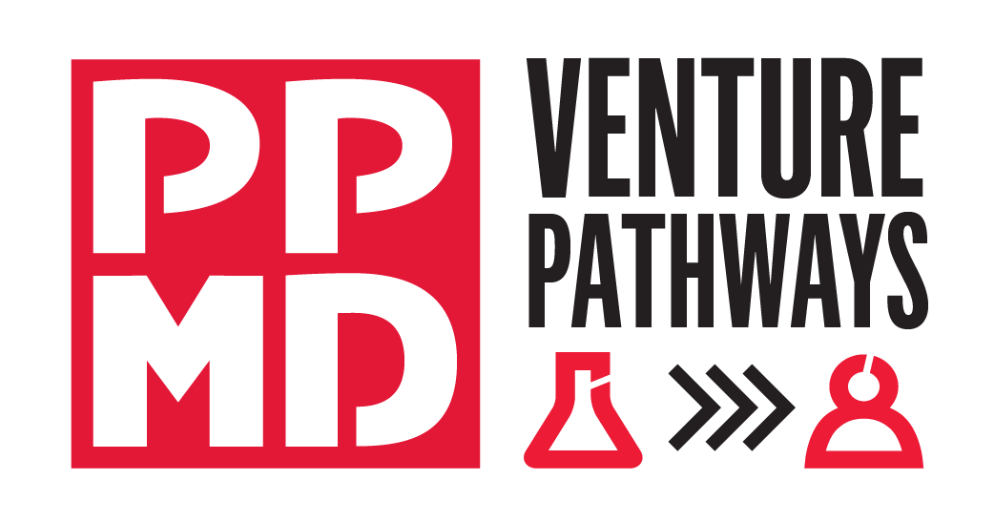
PPMD is excited to announce that the organization has provided $500,000 in funding to Kinea Bio, Inc. (Kinea) through PPMD Venture Pathways, the organization’s venture philanthropy program which provides industry funding to accelerate therapeutic development. This funding commitment aims to address current limitations in gene therapy delivery and will advance the development of the company’s next-generation adeno-associated virus (AAV) mediated midi-dystrophin gene replacement therapy for the treatment of individuals with Duchenne by enabling Kinea to complete critical studies needed to secure funding required to advance their investigational product to the clinic.
Duchenne is the most common genetic disorder diagnosed in childhood, affecting approximately one in 5,000 live male births. Duchenne is caused by a change in the DMD gene that codes for the dystrophin protein. Gene therapy holds the promise of providing benefit to patients with Duchenne by introducing replacement (shortened) versions of the dystrophin producing gene into the muscle cells, where no dystrophin is produced.
Since 2016, PPMD has focused attention on the advancement of gene therapy for Duchenne. The organization prioritizes research for next-generation and future-generation gene therapies both through PPMD’s Gene Therapy Initiative and the PPMD Venture Pathways program.
One limitation to existing gene replacement strategies for Duchenne is the limited packaging capacity of AAV, which means a shortened micro-dystrophin transgene must be used. While micro-dystrophin proteins can provide benefit to patients, they are missing significant protein domains compared to the full-length dystrophin protein.
Additionally, the current gene therapy strategies require very high doses of viral vector to effectively get the micro-dystrophin transgenes into muscle. These high vector doses can increase the safety risk associated with receiving the therapy.
Kinea’s approaches to these challenges are: (1) to utilize a dual vector approach to enable delivery of a larger construct (called a midi-dystrophin) to individual muscle cells. This midi-dystrophin is a larger dystrophin protein, containing more key domains of the dystrophin protein than current micro-dystrophins, and preclinical data suggests it may provide more benefit to muscle; (2) to utilize next-generation AAVs that increase the efficiency of viral delivery to muscle cells, thereby facilitating lower total AAV doses so as to decrease the risk of serious adverse events; and (3) to utilize miniaturized and highly active muscle-specific expression cassettes to produce high levels of midi-dystrophin exclusively in muscle cells.
Eric Camino, PhD, PPMD’s Vice President of Research and Clinical Innovation, explains:
“Through the PPMD Venture Pathways’ funding commitment to Kinea, PPMD continues our cutting-edge approach to accelerate research to get effective and safe therapies to the clinic and then into the hands of our community as quickly as possible. There is compelling preliminary evidence showing that Kinea’s dual vector midi-dystrophin approach can provide improved benefit compared to micro-dystrophin replacement therapies. This funding commitment from PPMD will enable the Kinea team to further advance the development of their midi-dystrophin product in the hopes of improving the health and function of dystrophic muscle in all people living with Duchenne.”
Casey Childers, DO, PhD, Chief Executive Officer of Kinea Bio, explains:
“We are pleased to receive this funding commitment from PPMD. This is an important milestone for Kinea and will help accelerate our midi-dystrophin strategy for larger transgene construct delivery.”
Jeff Chamberlain, PhD, Chief Scientific Advisor of Kinea Bio, describes:
“Our goal is to use a midi-dystrophin transgene, which contains more functional protein domains than current micro-dystrophins, along with a muscle regulated & targeted AAV to increase transduction efficiency to muscle tissue and dramatically improve muscle function and quality of life for patients living with this genetic disorder. Our gene therapy approach potentially overcomes many of the limitations of currently approved and investigational micro-dystrophin replacement therapies and builds on the learnings and research from my lab that has helped to shape where gene therapy for Duchenne is today.”
For the past 30 years, PPMD has funded more than $55 million in research to enhance our knowledge of dystrophinopathies. In addition to PPMD’s significant pre-clinical and academic research funding, the organization provides funding to biopharmaceutical companies through PPMD Venture Pathways, its venture philanthropy program. This type of industry funding allows companies to complete critical studies needed to advance investigational products to the clinic. These funding commitments also create the opportunity for PPMD to have a financial return that can be reinvested into its research strategy and support additional work in the future. All of PPMD’s research funding commitments undergo a rigorous scientific evaluation and are selected on the basis of potential benefit to the Duchenne community. Learn more about PPMD’s Venture Pathways program.



 by: Parent Project Muscular Dystrophy
by: Parent Project Muscular Dystrophy

